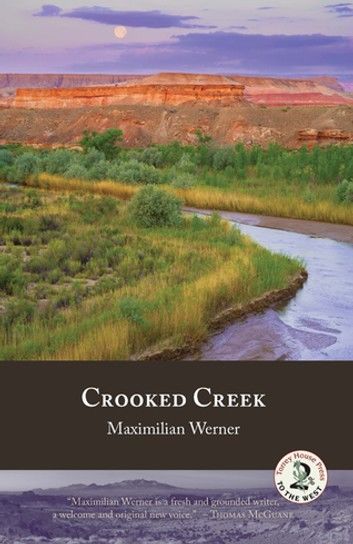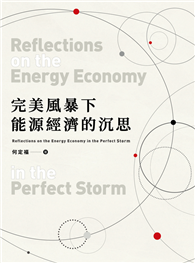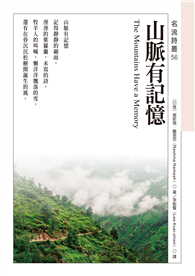| FindBook |
有 1 項符合
Crooked Creek的圖書 |
 |
Crooked Creek 作者:Maximilian Werner 出版社:Torrey House Press 出版日期:2011-06-08 語言:英文 |
| 圖書館借閱 |
| 國家圖書館 | 全國圖書書目資訊網 | 國立公共資訊圖書館 | 電子書服務平台 | MetaCat 跨館整合查詢 |
| 臺北市立圖書館 | 新北市立圖書館 | 基隆市公共圖書館 | 桃園市立圖書館 | 新竹縣公共圖書館 |
| 苗栗縣立圖書館 | 臺中市立圖書館 | 彰化縣公共圖書館 | 南投縣文化局 | 雲林縣公共圖書館 |
| 嘉義縣圖書館 | 臺南市立圖書館 | 高雄市立圖書館 | 屏東縣公共圖書館 | 宜蘭縣公共圖書館 |
| 花蓮縣文化局 | 臺東縣文化處 |
|
|
圖書介紹 - 資料來源:樂天KOBO 評分:
圖書名稱:Crooked Creek
2012 Eric Hoffer Book Awards for General Fiction Honorable Mention
2011 Utah Book Award Finalist
Crooked Creek takes place during the latter part of westward expansion and chronicles the lives (and deaths) of the Wood family. The Woods-Preston and Sara-must flee Arizona when they, along with Sara's parents and little brother Jasper, unwittingly get caught up in the plunder and sale of American Indian corpses and funerary objects. Preston, Sara, and Jasper end up in the Heber Valley of Utah, where they seek the support of Sara's Uncle Neff until they can be reunited with Sara's mother and father. But from the moment they ride into Heber, Preston and Sara learn that life in the valley is not as it appears, and that no matter how far we run, we cannot escape the past.
Maximilian Werner is the author of Black River Dreams, a collection of literary fly fishing essays that won the 2008 Utah Arts Council's Original Writing Competition for Nonfiction: Book. Mr. Werner's poems, fiction, creative nonfiction, and essays have appeared in several journals and magazines, including Matter Journal: Edward Abbey Edition, Bright Lights Film Journal, The North American Review, ISLE, Weber Studies, Fly Rod and Reel, and Columbia. He lives in Salt Lake City with his wife and two children and teaches writing at the University of Utah.
Maximilian Werner is a fresh and grounded writer, a welcome and original new voice.”
-Thomas McGuane, author of Driving on the Rim
Here in the deep measured prose of Max Werner is a western story, harsh and lush as the old world it depicts. Crooked Creek shows again that one of the natural laws of the wilderness—along with wind and stone and animals and family—is violence. Just as wind and water shaped the stone, trouble shaped these men. With its compelling, layered story, this rich book is a reader’s pleasure.”
-Ron Carlson, author of The Signal
Max Werner’s Crooked Creek offers a haunting voyage into the past and into living landscapes sharpened by western light, resonating with the work of such authors as Cormac McCarthy and Wallace Stegner. A narrative of the vitality of family bonds, it is also a tale of the heroic struggle to carry the burden of memory and to transform history’s nightmares into visions of possibility, as Octavio Paz once argued was the high calling of literature. Crooked Creek reminds us of the tough aesthetic that is required to sustain hope in family, in community, and in the staggering and heartbreaking beauty of nature that Werner’s prose powerfully illuminates, while also reckoning with the dark sins of betrayal and violence that are the legacies of the American West. Werner convinces us that no meaningful sense of place is possible otherwise.”
-George Handley, author of Home Waters: A Year of Recompenses on the Provo River
2011 Utah Book Award Finalist
Crooked Creek takes place during the latter part of westward expansion and chronicles the lives (and deaths) of the Wood family. The Woods-Preston and Sara-must flee Arizona when they, along with Sara's parents and little brother Jasper, unwittingly get caught up in the plunder and sale of American Indian corpses and funerary objects. Preston, Sara, and Jasper end up in the Heber Valley of Utah, where they seek the support of Sara's Uncle Neff until they can be reunited with Sara's mother and father. But from the moment they ride into Heber, Preston and Sara learn that life in the valley is not as it appears, and that no matter how far we run, we cannot escape the past.
Maximilian Werner is the author of Black River Dreams, a collection of literary fly fishing essays that won the 2008 Utah Arts Council's Original Writing Competition for Nonfiction: Book. Mr. Werner's poems, fiction, creative nonfiction, and essays have appeared in several journals and magazines, including Matter Journal: Edward Abbey Edition, Bright Lights Film Journal, The North American Review, ISLE, Weber Studies, Fly Rod and Reel, and Columbia. He lives in Salt Lake City with his wife and two children and teaches writing at the University of Utah.
Maximilian Werner is a fresh and grounded writer, a welcome and original new voice.”
-Thomas McGuane, author of Driving on the Rim
Here in the deep measured prose of Max Werner is a western story, harsh and lush as the old world it depicts. Crooked Creek shows again that one of the natural laws of the wilderness—along with wind and stone and animals and family—is violence. Just as wind and water shaped the stone, trouble shaped these men. With its compelling, layered story, this rich book is a reader’s pleasure.”
-Ron Carlson, author of The Signal
Max Werner’s Crooked Creek offers a haunting voyage into the past and into living landscapes sharpened by western light, resonating with the work of such authors as Cormac McCarthy and Wallace Stegner. A narrative of the vitality of family bonds, it is also a tale of the heroic struggle to carry the burden of memory and to transform history’s nightmares into visions of possibility, as Octavio Paz once argued was the high calling of literature. Crooked Creek reminds us of the tough aesthetic that is required to sustain hope in family, in community, and in the staggering and heartbreaking beauty of nature that Werner’s prose powerfully illuminates, while also reckoning with the dark sins of betrayal and violence that are the legacies of the American West. Werner convinces us that no meaningful sense of place is possible otherwise.”
-George Handley, author of Home Waters: A Year of Recompenses on the Provo River
|











